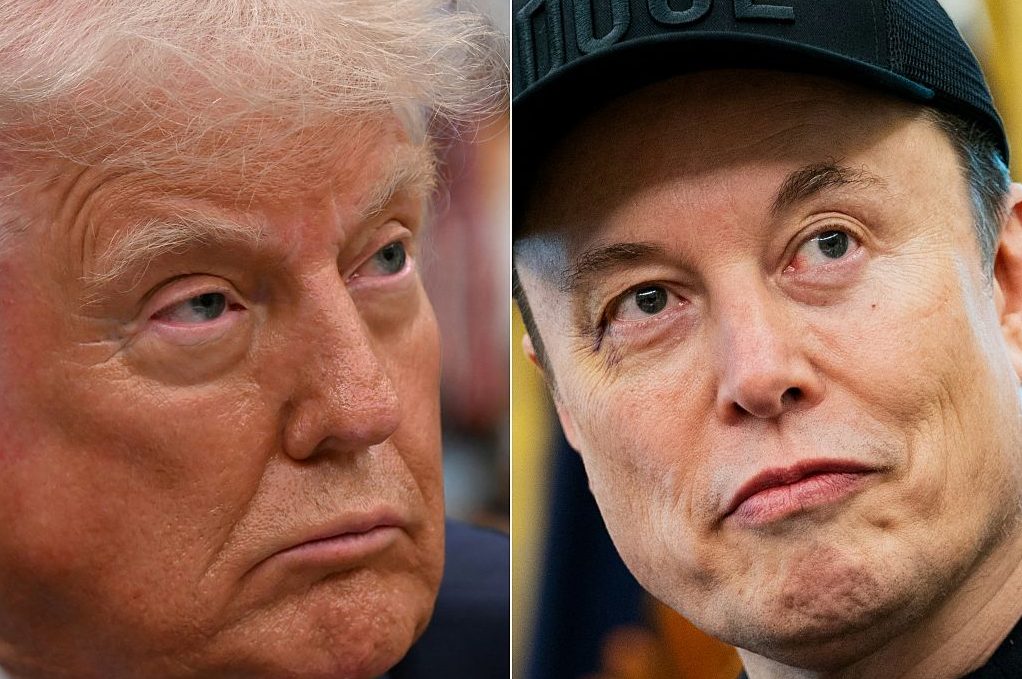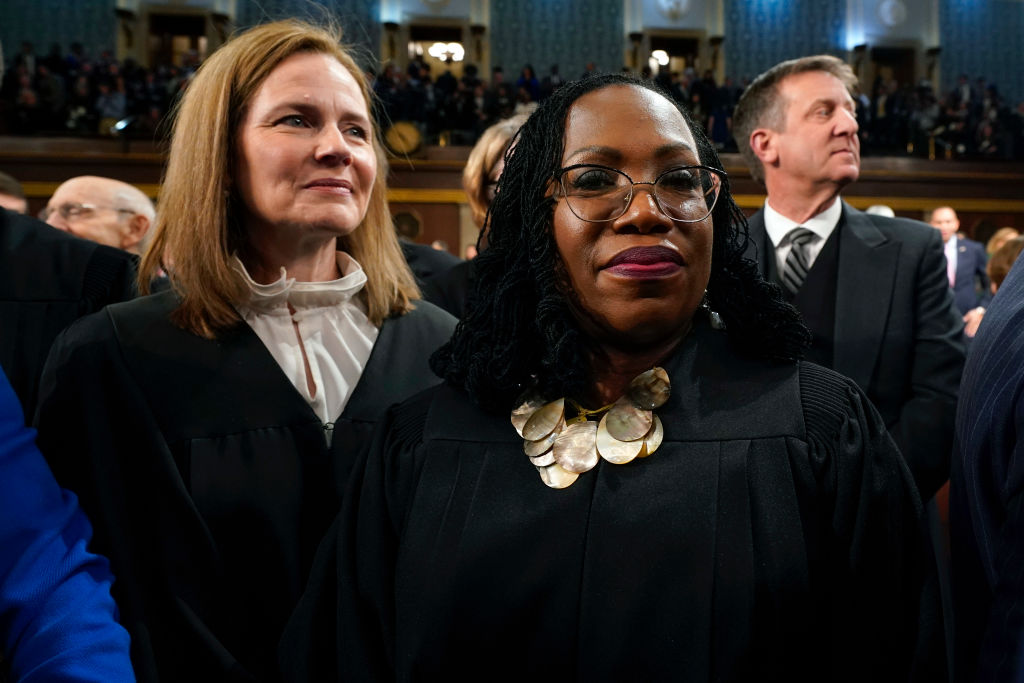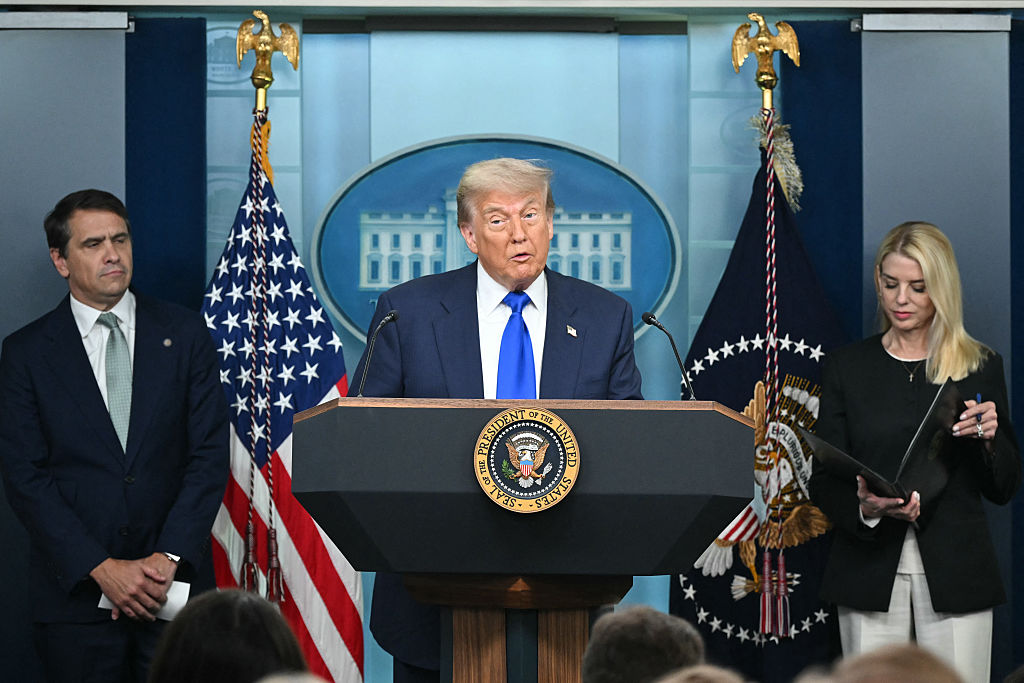Welcome to Thunderdome, where on this week’s podcast we discussed why this seems to be the moment that Democrats publicly turned on Hunter Biden.
There have already been statements from multiple Capitol Hill Democrats indicating that they believed Hunter’s activities had risen to the level of illegal and unethical activity — even from partisans like Jerry Nadler and Jamie Raskin. But the comment from Chris Murphy, viewed not just as a partisan but as a close White House ally on multiple fronts, that Hunter is “worthy of prosecution” in reaction to the latest California indictment has to be read as a message to Joe Biden: your re-election may well depend on what you do, or don’t do, about your son’s obvious crimes.
This is why the Hunter Biden appearance on Capitol Hill in the Senate swamp, arranged by Eric Swalwell, to hold a press conference on his defiance of a congressional subpoena has to be read not just as a defiant response to Hill Republicans but to Hill Democrats as well.
The decision Hunter, Abbe Lowell and the rest of his team made to go super aggressive instead of doing what the White House staff reportedly preferred — keeping his head down through the 2024 election — has been an unmitigated disaster. It blew up his sweetheart deal in an act Jonathan Turley calls the definition of “legal gluttony.” It hasn’t won public opinion to his side, despite his “I’m just guilty of being the child of the guy who beat Trump” victimhood rant — from a fifty-three-year-old man who dodged taxes and spent hundreds of thousands on hookers and drugs while dodging his child support payments and feigning poverty. And this latest display in the Senate swamp was apparently key in making the impeachment inquiry a unanimously supported Republican vote.
Hunter’s statement also lent itself to an obvious question given its apparently careful phrasing (emphasis added):
“(The MAGA right) have lied over and over about every aspect of my personal and professional life, so much so that their lies have become the false facts believed by too many people,” he said. “Let me state as clearly as I can. My father was not financially involved in my business, not as a practicing lawyer, not as a board member of Burisma, not in my partnership with the Chinese private businessman, not in my investments home nor abroad, and certainly not as an artist.”
How far we’ve come from Joe Biden never talked to his son or anyone else about his business! As it turns out, according to the White House press secretary herself, Hunter even talked to Joe about his plan to defy a congressional subpoena. Even CNN was quick to note the shift in language, much to the frustration of Hunter’s allies in the White House. Here’s an interaction between CNN’s Phil Mattingly and an irate White House spokesperson for Oversight and Investigations Ian Sams:
Phil Mattingley: In the statement that Hunter Biden made yesterday said, “Let me say it as clearly as I can. My father was not financially involved in my business.”
He was unequivocal about that. But that is an evolution of where the president had been during the campaign, where the White House had been at the start of the administration. Not involved financially in the business is very different than never talked about the business, not been involved in the business at all. Was that an intentional point of clarity, do you think?
Ian Sams: I actually dispute the whole premise of that question.
PM: Why?
IS: It’s one of Jim Jordan’s favorite little shiny objects is to try to take a semantic thing and make an argument that is, that is somehow far afield from what they’re actually focused on.
We’ve been extremely clear over and over again for years, and nothing has changed. The president was not in business with his son, period. They’re trying to make up all sorts of allegations and make up lies about him doing things that were wrong and-
PM: Ian, with respect. I’m not citing Jim Jordan here. I was in some of the White House press briefings where it was said explicitly the president did not talk to his son about business dealing- that is very clearly not the case. And I think the statement from the White House has changed and I think been a little bit more precise over the course of the last several months. It’s what the president said on the campaign trail as well. I’m not saying this is like an impeachable offense or some grand indictment, but it is a fact that the president said one thing that ended up being not true.
IS: Again. I dispute that. That’s that. That’s true. That is not true!
So Democrats now have to retreat to the final bunker of “no evidence Joe Biden personally benefited financially from Hunter’s dealings,” itself a debatable claim. Here’s the problem: he doesn’t need to have directly financially benefited personally in order for this to rise to an impeachable offense. As Jonathan Turley notes:
One of the false narratives being bandied about is that there is no proof that the influence peddling Biden’s son and brothers benefited the president himself. Thus, the argument goes, even though he was the subject of the influence peddling, Joe Biden did not legally or constitutionally benefit from the payments to constitute bribery or other crimes.
That is utter nonsense. The courts have repeatedly found that benefits to family members (far more modest than the millions in this case) can constitute bribery for a politician. That has also been the position of the Justice Department in past cases. Regardless of whether Hunter or his associates were speaking truthfully about handing over percentages of these funds to Joe Biden, he practically and legally benefited from the millions going to his family.
The White House continues to insist that Joe Biden will not pardon his son, that he would never do that. But as this impeachment inquiry rolls forward, the indictments for tax fraud stack up, and the real possibility that his son could see the inside of a jail cell rises, Joe Biden has to look in the mirror and decide what he values more: however many more years he gets in the White House, or a son with whom he can spend life with in the time he has left.
Trump’s lead is about Biden’s weakness
Byron York writes that in Iowa, Trump has the polls on lock. But how permanent are the rest of Trump’s leads for a general?
The Iowa polling was the subject of yesterday’s newsletter. The new Des Moines Register poll, considered quite reliable, showed Trump extending his lead to thirty-two points over second-place Ron DeSantis, 51 percent to 19 percent, with Nikki Haley in third place at 16 percent. The pollster called Trump’s lead “commanding” and noted that the shrinking GOP field, which was supposed to help Trump’s opposition, “may have made Donald Trump even stronger than he was.” The Iowa caucuses are now a little less than five weeks away.
As far as the key swing states are concerned, CNN released a new general election poll showing Trump leading President Joe Biden in head-to-head matchups in Georgia and Michigan. Biden, of course, won both states in 2020, but the CNN pollsters found Trump with a five-point lead, 49 percent to 44 percent, in Georgia, and a ten-point lead, 50 percent to 40 percent, in Michigan. “Broad majorities in both states hold negative views of the sitting president’s job performance, policy positions, and sharpness,” CNN reported.
As far as the national polling is concerned, the Wall Street Journal released a new survey showing that Trump not only leads Biden in a one-on-one contest, 47 percent to 43 percent, but is stronger in a race that includes third-party candidates. The poll showed those third-party candidates, led by Robert F. Kennedy Jr., drawing a total of 17 percent support in a multi-candidate race, while at the top, Trump led Biden by six points, 37 percent to 31 percent.
The really good news for Trump is Biden’s remarkable weakness. “Trump has double-digit leads on being able to best handle the economy, inflation, crime, securing the border, the Ukraine war, and the Israeli conflict,” political analyst Sean Trende noted on X. “Biden has a double-digit lead on abortion rights. Everything else is single digits, which sounds good except that things like healthcare policy and social security are supposed to be double-digit Democratic leads.”
Rich Lowry rightly notes that this is about Joe Biden’s weakness more than Trump’s strength.
The most salient doubt about Trump among on-the-fence Republicans has never been his policy priorities, governing effectiveness or conduct after the 2020 election, but his ability to win.
Trump’s standing in the party was shaken after the 2022 elections when Republicans underperformed, and he had his fingerprints on the disappointment. The Ron DeSantis landslide in Florida created a contrast that seemingly opened a vista for an intuitive, winning argument — stick with Trump and lose, or go with the young, fresh governor and win.
The electability argument also had the advantage of side-stepping any of the issues about Trump that most Republicans don’t want to hear. Saying he can’t win isn’t a critique of him personally or anything he wants to do. It’s a practical claim, not a moral one. And it can be offered more in a tone of sorrow than anger.
The problem is that the polling hasn’t cooperated, thanks to Biden’s downward spiral.
In 2016, Trump was often reduced to citing Drudge polls and other dubious sources to try to demonstrate what he’s always maintained is his overwhelming public support. This time around, he can cite the most reputable polls in the business.
The Biden collapse is nearly comprehensive. He is losing in ballot tests to Trump, his approval rating is scraping bottom, he’s trailing on almost every top issue, and super-majorities think he’s too old to serve again.
He is the weakest incumbent since Jimmy Carter or George H.W. Bush.
The latest Wall Street Journal poll has Trump leading Biden by four points in a hypothetical two-way race, and six in a multi-candidate field. Only 37 percent approve of Biden’s job performance, while 61 percent disapprove. Fewer than 30 percent of voters approve of “Bidenomics.”
Trump leads by double digits on the economy, inflation, crime, the Ukraine and Gaza wars, and the border. He leads by thirty-four points on having the physical stamina to do the job, and sixteen points on being mentally up for the job. And people think Trump policies helped them by 49-37 percent, and Biden hurt them by 25-53.
Poll: Pivot on border would boost Biden
With the current year-end focus on border policy on Capitol Hill, a new poll from Democratic donor Reid Hoffman’s group is pushing the hard truth that Joe Biden needs to pivot away from the left on the issue:
The politics of a border pivot are good for President Joe Biden. At least that’s the central finding of a recent poll commissioned by Blueprint, a new public opinion research firm backed by megadonor Reid Hoffman with the aim of delivering tough talk to Democrats in order to secure Biden’s re-election. The study, shared with Playbook exclusively, found that:
- Voters align more with Donald Trump than Biden on immigration, asylum and the border: 56 percent of voters said Biden is ‘far more’ or ‘somewhat more’ liberal than they are on the matter — with a majority of independents saying Biden is “far more liberal” than them. Forty-four percent of voters said Trump is close to their views. Only 25 percent said the same of Biden
- More than half of respondents (52 percent) said they want the US to reduce the number of refugees and asylum seekers it takes in, and a similar amount (53 percent) said they want a higher bar for granting asylum and refugee status. By contrast, only 17 percent want to allow in more refugees, and 14 percent said rules for granting asylum should be looser
- A majority of voters (55 percent, including 63 percent of independents) prefer a deal that ties foreign aid to stricter border security to one that doesn’t address the border at all.
“The current Ukraine and Israel aid negotiations offer Biden an opportunity to positively realign voter perceptions of his immigration policy.” Evan Roth Smith, Blueprint’s head pollster, said in a statement. “Self-identified Democrats and independents both support a deal by an eight-point margin. These are the voters we need to win elections, and Biden would disappoint far more of them through inaction than he’d alienate through a well-structured deal on the border and foreign aid.”
The full poll results are here. It’s worth asking, though: would such a pivot hurt him considerably with progressives?
One more thing
It’s not always worth reading the feature-length articles that DC journos are buzzing about, but in this case, James Bennet’s essay on the New York Times and how it has lost its way is a must-read. Two quotes that stand out:
“For now, to assert that the Times plays by the same rules it always has is to commit a hypocrisy that is transparent to conservatives, dangerous to liberals and bad for the country as a whole. It makes the Times too easy for conservatives to dismiss and too easy for progressives to believe. The reality is that the Times is becoming the publication through which America’s progressive elite talks to itself about an America that does not really exist.”
And:
“It became one of Dean Baquet’s frequent mordant jokes that he missed the old advertising-based business model, because, compared with subscribers, advertisers felt so much less sense of ownership over the journalism. I recall his astonishment, fairly early in the Trump administration, after Times reporters conducted an interview with Trump. Subscribers were angry about the questions the Times had asked. It was as if they’d only be satisfied, Baquet said, if the reporters leaped across the desk and tried to wring the president’s neck. The Times was slow to break it to its readers that there was less to Trump’s ties to Russia than they were hoping, and more to Hunter Biden’s laptop, that Trump might be right that covid came from a Chinese lab, that masks were not always effective against the virus, that shutting down schools for many months was a bad idea.”
Take the time to read the whole thing — it’s worth it to get the perspective of an NYTinsider on what went wrong.


























Leave a Reply